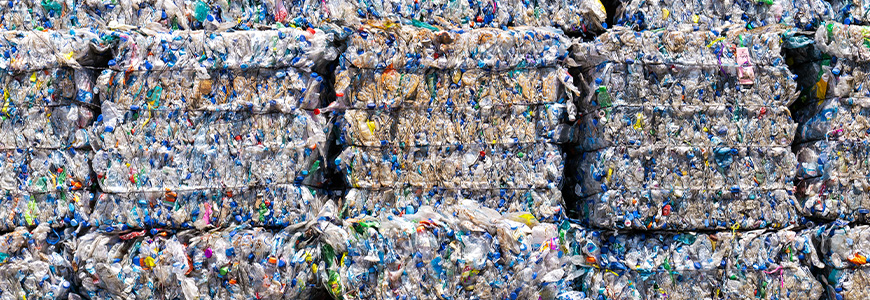Across the nation, landfills are reaching capacities as expansion permits become increasingly difficult to obtain. In addition, PFAS, or per- and poly-fluoroalkyl substances, are a class of manmade chemicals prevalent in most landfills and have recently received significant public scrutiny and been linked to potential health problems.
Whether it be landfill operational efficiencies, soil and groundwater management, odor control, or novel recycled materials, Atmos Technologies stands at the cutting edge of waste management and infrastructure solutions. In March, the Pennsylvania-based company was acquired by Insight Equity, with William Blair acting as exclusive advisor to Atmos on the acquisition.
“The issues Atmos deals with impact everyone,” said Fred Rullo, president and CEO of Atmos. “Our solutions can positively impact entire surrounding communities where our work is done.”
Founded in 1920, Atmos is a specialty materials leader that formulates, designs, and manufactures customized products and application equipment to solve environmental and sustainability challenges. Due in part to its rich history, Atmos is a one-stop solutions provider at a time when solid waste landfills, transfer stations, and environmental remediation sites face numerous challenges and evolving regulations.

Balancing Customer and Regulatory Needs
Atmos’ products range across a multitude of services, including:
- Odor and emissions control systems
- Daily and intermediate covers for landfill waste
- Dust control
- Leachate treatment, or the process for wastewater that has dissolved or entrained pollutants after passing through a landfill
Most of the company’s recent growth stems from landfills. New product development has focused heavily on landfill sustainability challenges and the environmental remediation market. Notably, Atmos is focused on conserving landfill airspace, or the volume of space allowed for the totality of solid waste at a landfill, which Rullo explained to be a major need within the industry.
Expansion permits are increasingly difficult to obtain, sometimes taking five to 10 years to get approved, if approved at all. To combat this, Atmos uses a daily cover system, which includes an environmentally friendly foam and an automated unit that covers a large landfill’s working face area in less than an hour.
Additionally, the company’s new HyRAP® process and rejuvenating oil are a ground-breaking way to produce asphalt pavement. Utilizing up to 100% recycled asphalt pavement for city and country roads, local streets, and parking areas, this lower-cost solution is more accessible than other substitutes for key asphalt inputs.
While landfills may seem like an industry with little need for change, the reality of their operations is far from it. Much of their work is heavily regulated—and regulations are changing rapidly, requiring novel technologies and methods.
“We try to stay plugged in as much as possible with our customers to understand the challenges they face every day,” Rullo said. “As regulations change, we try to be on the leading edge. That’s what brings opportunities.”
Another heavily regulated area Atmos focuses on is PFAS, or per- and poly-fluoroalkyl substances, which have been commonly used for decades in items from non-stick pans to firefighting foam. Over time, however, PFAS can leak into soil, water, and air, causing health problems to surrounding organisms.
To battle this, Atmos developed a small portable system that landfills can quickly implement for onsite leachate treatment and reuse rather than sending the leachate off-site to a local treatment plant.
Atmos’ industry experts’ ongoing relationships with regulatory departments help it stay on top of current policies, but its close-knit relationships with its customer base set it apart from its competitors.
To Rullo, it’s all about listening to the customer and understanding their challenges.
“Staying connected with the people we work with leads us to our new product development activities,” Rullo said. “We’re in a solid position against competitors because we try to customize solutions to fit our clients’ daily needs.”
Staying Strong Amidst Economic Downturns
While some industries may be affected by broader economic trends, Atmos has found ways to continue growing its business.
To Rullo, the landfill side of their business is the most “recession-proof.” That’s partly due to government oversight and regulation providing consistent business demand, but perhaps more importantly because communities have a need for landfill services that show no signs of slowing.
It’s the streets they drive their cars on or the landfills for the garbage they create. We help mitigate odors, noise, and heavy equipment volume in neighborhood landfill sites. Atmos provides critical solutions for environmental remediation work in people’s communities to revitalize them.
FRED RULLO, Atmos President and CEO
In the geographic areas where it provides services, Atmos’ products truly affect average customers and the communities in their day-to-day lives.
"Our products help simplify landfill processes,” Rullo said. “As word continues to get out as to where our new technology can be utilized, we feel we’re in a good position to grow rapidly. Trends limiting carbon emissions, such as onsite wastewater treatment, will continue to be in demand and further support our solutions set.”
Impacting Entire Communities for the Better
When asked how Atmos can continue to expand its customer base, Rullo emphasized the importance of understanding that their work impacts everyone—down to the household level.
“It’s the streets they drive their cars on or the landfills for the garbage they create,” Rullo said. “We help mitigate odors, noise, and heavy equipment volume in neighborhood landfill sites. Atmos provides critical solutions for environmental remediation work in people’s communities to revitalize them.”



